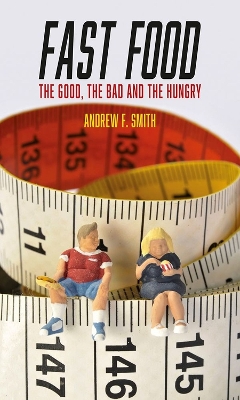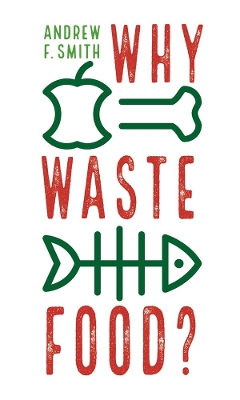Food Controversies
2 total works
Fast food is the most pervasive culinary trend of our time. It is an industry that has changed the way the world eats, as the model works virtually everywhere. At its heart are large multinational chains, running an estimated one million outlets in virtually every corner of the world, serving hundreds of millions of people every day. It provides access to reasonably tasty food with speed, economy and convenience, and appeals to customers of practically every nationality, ethnicity, religion, age, gender, class, financial status and culinary tradition on earth.Fast Food: A Global Perspective explores why this industry has been so successful, and at the same time examines its many negative effects. Fast food has harmed the environment, undermined the health of customers, degraded the diets of children, and underpaid its workers. Indirectly, through its suppliers, it has supported factory farming and condoned dangerous working conditions from field to processing plant. The fast-food industry has undercut indigenous food purveyors, contributed to the loss of local and regional diversity and promoted culinary homogenization around the world.Critics have published scathing exposes, supported boycotts, engaged in demonstrations, and lobbied political leaders in an attempt to force the fast-food corporations to reduce the harm they cause - usually to little effect.
Fast Food: A Global Perspective examines the industry's options and those of its customers, and asks what society as a whole can and should do to ameliorate the major problems generated by fast food.
Fast Food: A Global Perspective examines the industry's options and those of its customers, and asks what society as a whole can and should do to ameliorate the major problems generated by fast food.
About one-third of all food grown for human consumption is lost or discarded every year, despite financial, environmental and ethical reasons to not waste food. We grow enough food to adequately feed everyone in the world, yet hundreds of millions of people suffer from hunger, malnutrition or food insecurity. Together it accounts for about 8 per cent of the world’s total greenhouse gas emissions. So, if wasting food is such a patently bad idea, why do we discard so much?
In Why Waste Food?, Andrew F. Smith investigates one of today’s most pressing topics, examining the causes of avoidable food waste across the supply chain, and highlighting the ways in which we can all do something to tackle this global concern.
In Why Waste Food?, Andrew F. Smith investigates one of today’s most pressing topics, examining the causes of avoidable food waste across the supply chain, and highlighting the ways in which we can all do something to tackle this global concern.

